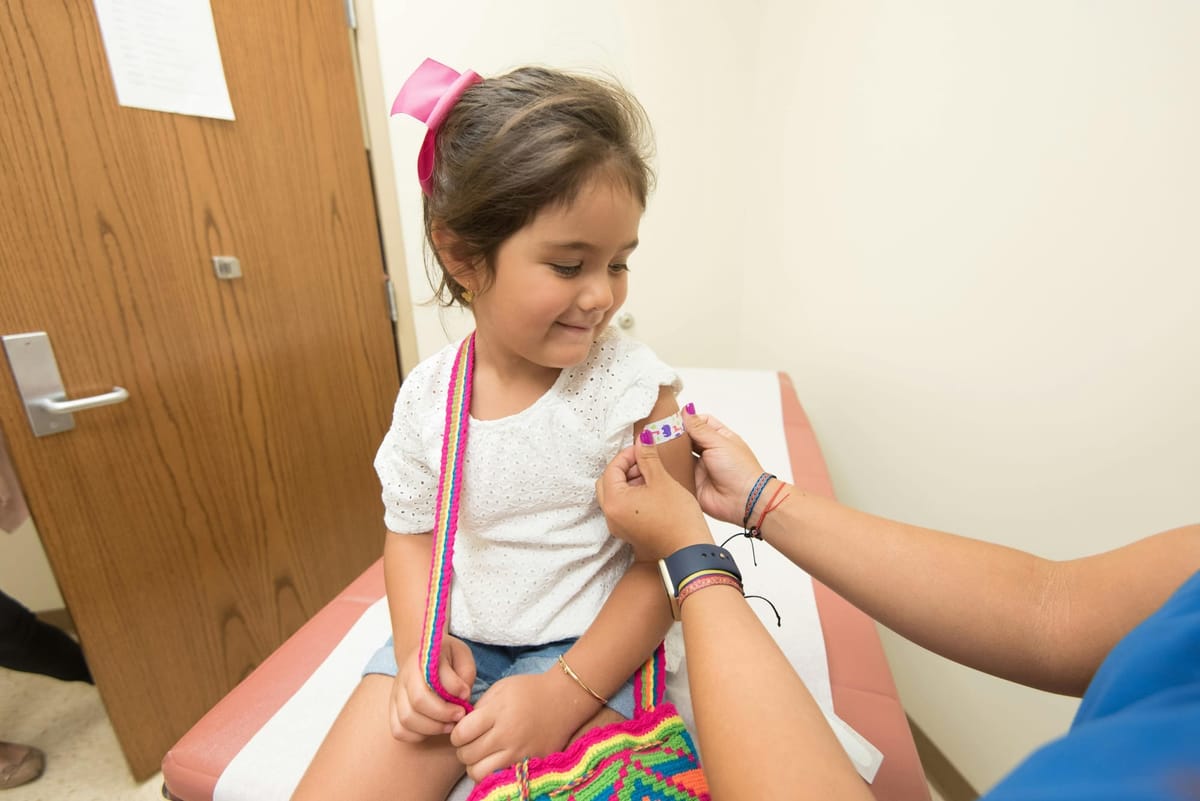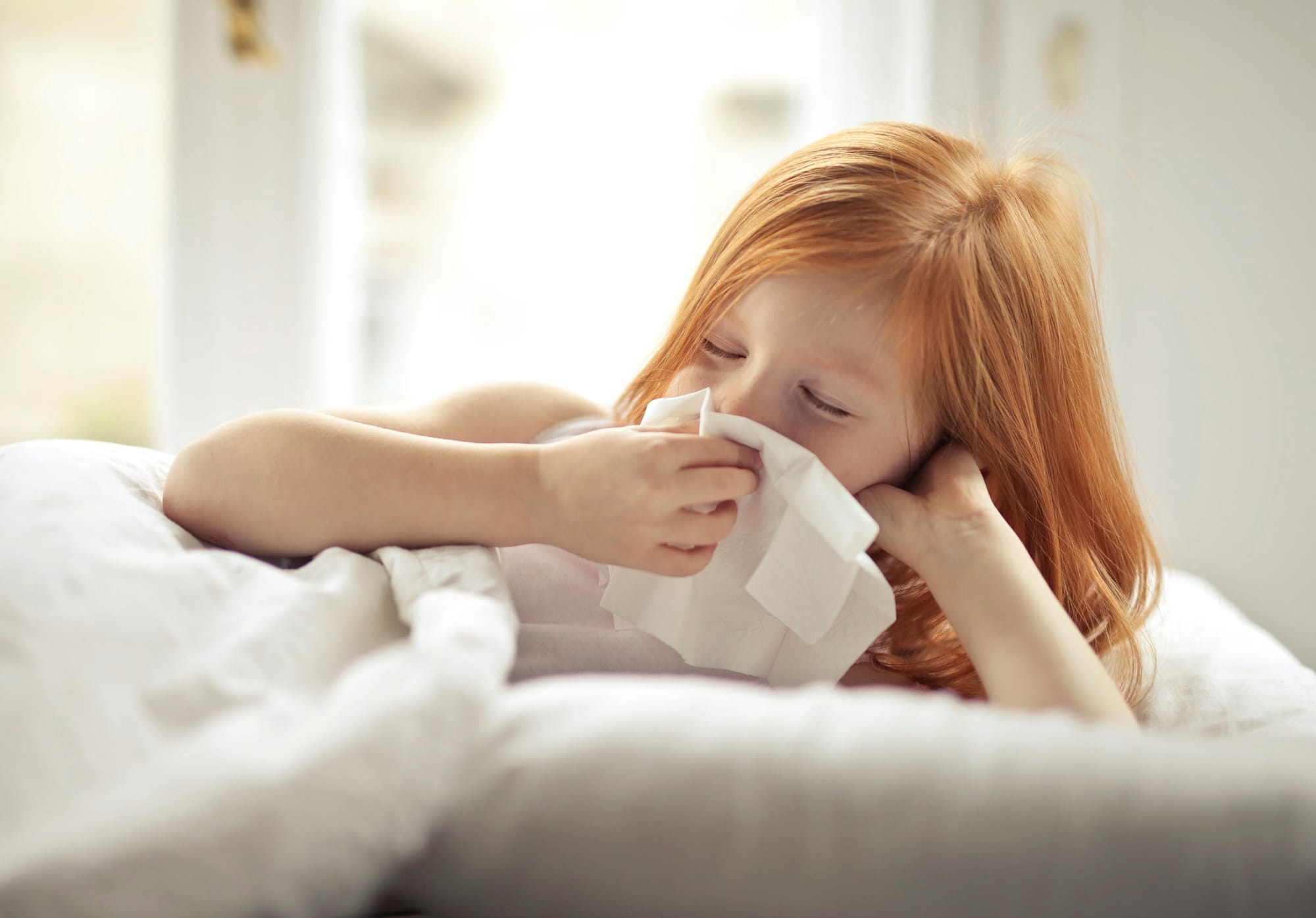What is measles and why should I get vaccinated?

The recent outbreak in the UK, particularly in the West Midlands, has raised concerns about the potential for further spread due to lower vaccine uptake in some areas. As of early 2024, there have been hundreds of confirmed cases, with a significant number occurring in children under the age of 10. The UK Health Security Agency (UKHSA) has declared the situation a national incident and emphasised the need for immediate action to increase MMR vaccine coverage to prevent large measles outbreaks. In this blog, we discuss how to recognise measles and why is is important to get vaccinated.
In light of the recent measles outbreak in the UK, it's crucial to understand the nature of measles, its symptoms, treatment methods, and the importance of vaccination. Measles is a highly contagious viral disease that can lead to serious health complications. The UKHSA has reported a significant number of cases, emphasising the urgency of addressing the outbreak and increasing vaccination rates to prevent further spread.
What is Measles?
Measles is a highly infectious, serious viral illness that can be very unpleasant. It spreads through respiratory droplets from coughing or sneezing and can remain in the air for up to two hours after the infected person leaves the area. Measles can affect individuals of any age. People most at risk of infection are infants under one year old, those who are unvaccinated, people with reduced immune system and pregnant women. However, measles is most common in children and can be prevented by vaccination.
Signs and Symptoms

The initial symptoms of measles resemble the symptoms of a cold and may include:
· Fever
· Runny nose
· Cough
· Red watery eyes
· Sore throat
· Rash that usually starts on the face and spreads downwards. The rash typically appears about 14 days after exposure to the virus.

Complications can include ear infections, diarrhoea, pneumonia, and in severe cases, encephalitis (brain inflammation), which can lead to permanent brain damage or death.
What to do if you’re concerned about measles.
It is important to take the following steps if you think that you or your child may have measles:

· Keep your child away from school or other childcare providing facility (e.g. nurseries) for at least 4 days from when the rash first appears and until they are completely recovered.
· Keep your child away from babies, anyone who is pregnant and those with a weakened immune system.
· Do not visit the GP surgery/ out of hours or hospital unannounced as you may spread the virus t people who already have weakened immune systems.
· Call the GP surgery so they can prepare by putting the right measures in place before your arrival.
Treatment
There is no specific antiviral treatment for measles; rather supportive care can be provided to relieve symptoms and address complications should they arise. This includes hydration, rest, and the use of medicines such as paracetamol to keep the temperature down.
Antibiotics may be prescribed only if bacterial infections such as pneumonia or ear infections occur as complications.
Importance of Vaccination
Vaccination is the most effective way to prevent measles. The measles, mumps, and rubella (MMR) vaccine is a safe and highly effective vaccine that provides long-lasting protection against these diseases. Despite the proven effectiveness of the MMR vaccine, vaccine uptake has been declining, leading to increased vulnerability in communities. The recent outbreak highlights the critical need for high vaccination coverage to prevent the spread of measles.
If you are unsure about whether your child is due a vaccine or has missed a vaccination, you can check your vaccination status by calling your GP surgery or checking you ‘Red book’. If your child has missed one of their MMR ‘s call your GP surgery ad book an appointment.
The MMR schedule is usually 1 vaccine at 12 months old and a 2nd vaccine at preschool, around 3 years and 4 months. For adults it’s never too late to get vaccinated.
Adults require 2 vaccines at 4 weeks apart.
You can request a version of the MMR vaccine that does not contain pork
products from your GP surgery, making it suitable for all faiths. Please note that the GP practice may need to order this product in specially, so it will be helpful to tell the GP surgery before the appointment.
MMR vaccine is not advised during pregnancy, those women of childbearing age
should avoid getting pregnant for at least 4 weeks following vaccination.
Pregnant women are advised to contact their midwife/GP surgery if they believe they have come into contact with Measles. Pregnant women who suspect they might have Measles should not go to an antenatal clinic or any other maternity setting until they have been assessed.
What to do now.
Check Your Vaccination Status: If you're unsure whether you or your children are up to date with the MMR vaccine, now's the time to check. Your GP can help you with this. You can log and record your family's vaccination so that you can keep track of all your vaccinations and future vaccination requirements.
Schedule Your Vaccination: If you or your kids need the vaccine, don't wait. Contact your GP, visit a local child health clinic, or check with community health centres to get vaccinated.
Protect Your Community: By vaccinating yourself and your children, you're not just protecting your family; you're also helping to stop the spread of measles in your community.
Vaccination is a simple step that can keep you safe from a disease that's easily preventable. Let's make sure we're all protected. Contact your GP today and ensure your vaccinations are up to date. Together, we can keep our communities safe and healthy.
What is measles and why should I get vaccinated- Summary
I hope you found today's post on 'What is measles and why should I get vaccinated' useful. Enter your email address to subscribe to this blog and receive notifications of new posts by email.
Measles is a highly infectious disease and can affect children and adults, although it is most common in young children and those who have not been vaccinated against the virus. The best way to avoid getting measles is to get vaccinated. If you suspect that you or your child may have measles, keep away from other children, pregnant women, GP surgery or hospital. Ring a health professional such as your GP surgery, ring 111 or NHS 111 online.
Check Your Vaccination Status: If you're unsure whether you or your children are up to date with the MMR vaccine, now's the time to check. Your GP can help you with this.
Schedule Your Vaccination: If you or your kids need the vaccine, don't wait. Contact your GP, visit a local child health clinic, or check with community health centres to get vaccinated.
Protect Your Community: By vaccinating yourself and your children, you're not just protecting your family; you're also helping to stop the spread of measles in your community.
Vaccination is a simple step that can keep you safe from a disease that's easily preventable. Let's make sure we're all protected. Contact your GP today and ensure your vaccinations are up to date. Together, we can keep our communities safe and healthy.
You can visit the following sites for more information and guidance about measles:
Measles: don't let your child catch it flyer [Available in 22 languages] (gov.uk)
MMR (measles, mumps and rubella) vaccine - NHS (www.nhs.uk)
Pregnant? Immunisation helps to protect you and your baby from infectious
diseases (gov.uk)




Comments ()